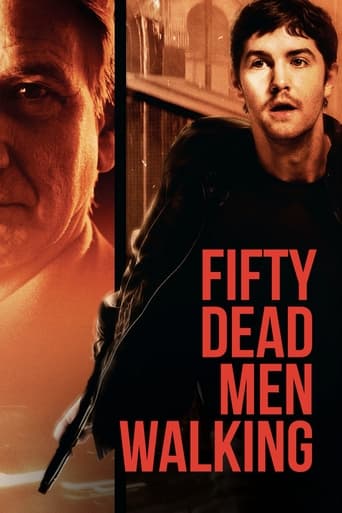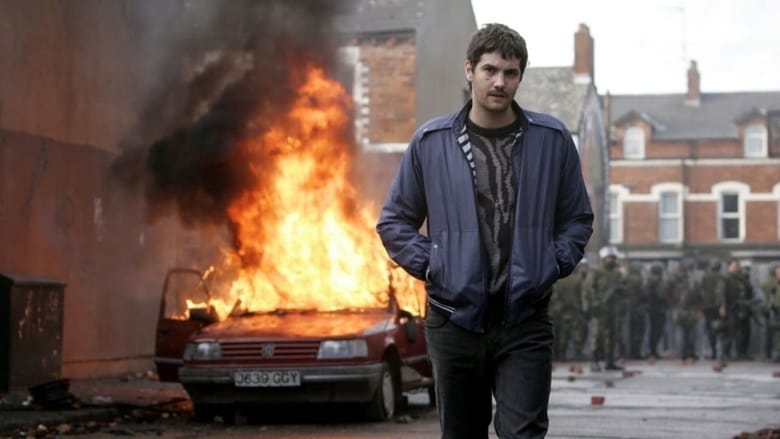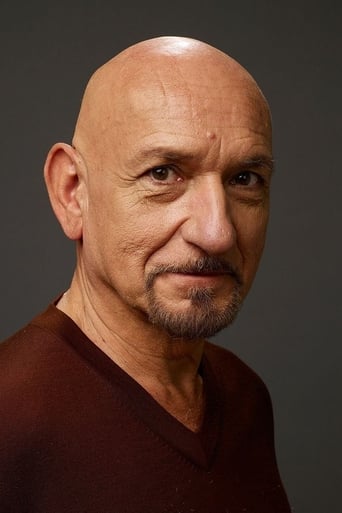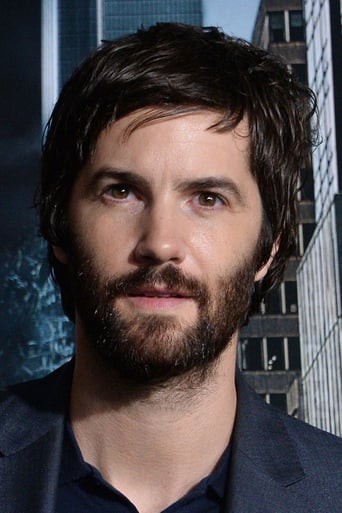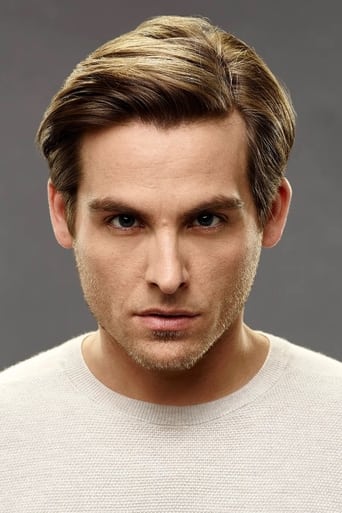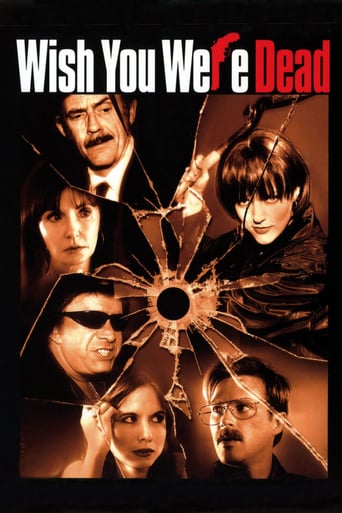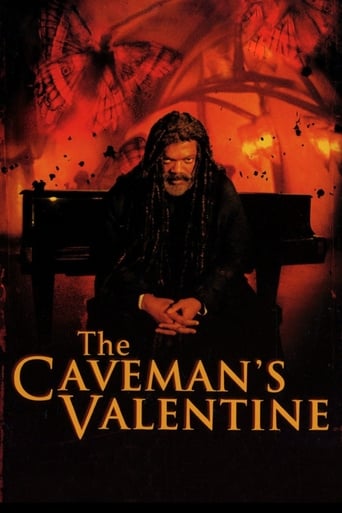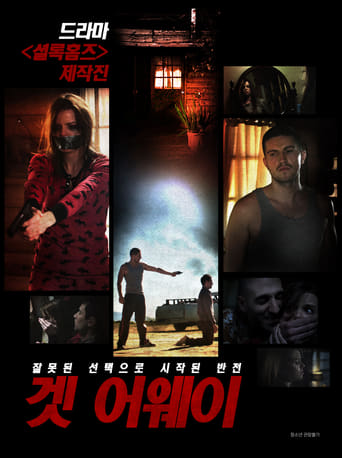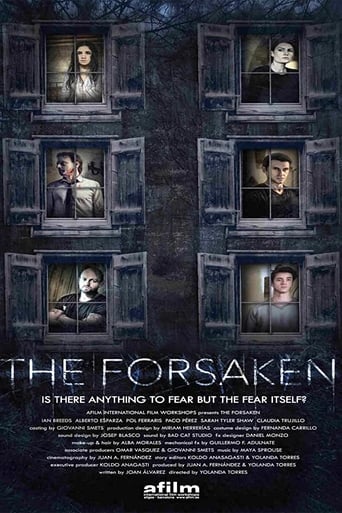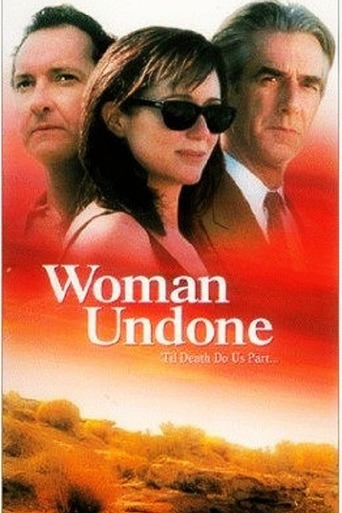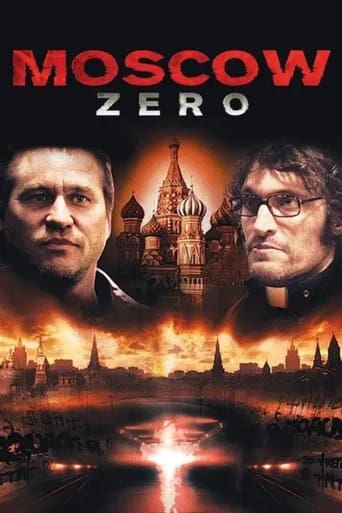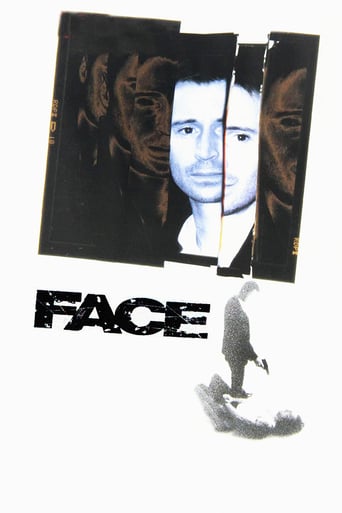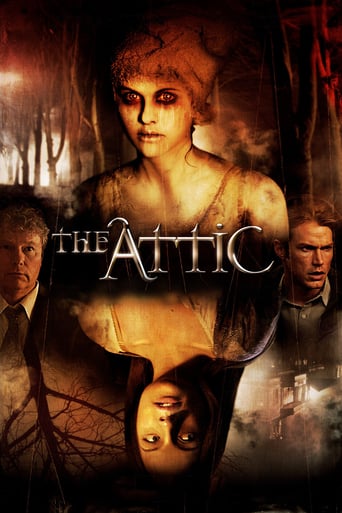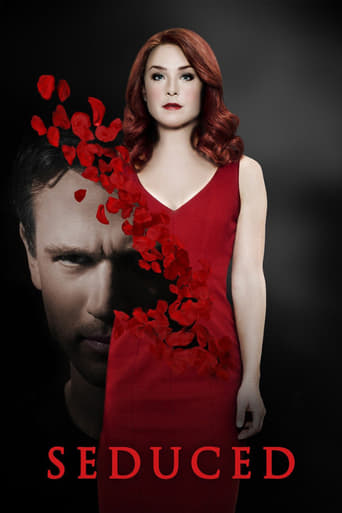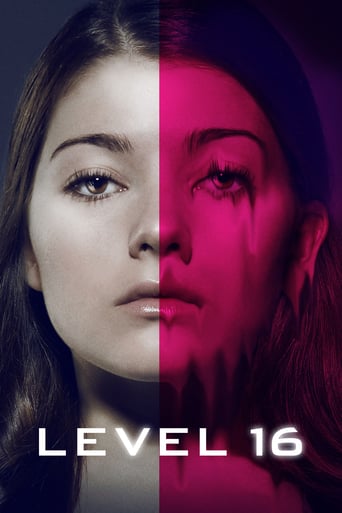Fifty Dead Men Walking (2009)
It's 1989, and in a Belfast torn apart by conflict and terrorism, petty criminal Marty McGartland is recruited by the British police to infiltrate the IRA. Guided by Special Forces officer 'Fergus', McGartland gains unparalleled insight into the organisation's dealings, providing his British handler with priceless, life-saving information. Based on a true story.
Watch Trailer
Cast


Similar titles
Reviews
Good story, Not enough for a whole film
It's the kind of movie you'll want to see a second time with someone who hasn't seen it yet, to remember what it was like to watch it for the first time.
The movie turns out to be a little better than the average. Starting from a romantic formula often seen in the cinema, it ends in the most predictable (and somewhat bland) way.
The film never slows down or bores, plunging from one harrowing sequence to the next.
In today's day and age, this movie should probably be required viewing for all who seem to feel that only Muslims are terrorists. "Fifty Dead Men Walking" is set in Belfast, Northern Ireland during what is euphemistically known as "The Troubles" - a time of violent and deadly sectarian violence between the Catholic IRA and the Protestant paramilitaries and the British Army. I thought the film, directed by Kari Skogland, successfully captured the sense of chaos that existed in Belfast at the time, as violence and killing simply became a part of the daily life of the city. The movie is based on the biography of Martin McGartland, a young man who joined the IRA and began to rise through its ranks, while also serving as a British informant. The title (of both the book and the movie) refers to the number of lives he believed he saved by being an informant. The sense of chaos which permeates the film revolves around McGartland. It's seen in his early life of petty crime; in his growing involvement with the IRA which causes moral qualms to rise within him; in his work as an informant, putting his life and the lives of those around him in danger; in his increasingly complicated family life - a girlfriend and a child, with a second child on the way. His life spiralled out of control from the moment he took the oath of loyalty to the IRA.Jim Sturgess played McGartland and I thought was very convincing in the role, while Ben Kingsley also worked as "Fergus" - his main contact with the British authorities. Fergus was also an intriguing character - a man who seemed to have little life except his work for British intelligence, but who developed a fondness for and a loyalty to McGartland. The performances made for a compelling story.The movie starts a bit slowly, offering through narration a bit of historical background to "The Troubles" - not the most exciting way to open a movie, but probably necessary to have everything in context without needlessly prolonging the movie by having to portray the history. Once it picks up, though, it's compelling viewing, and offers what I thought was a good look into the tactics of the IRA - especially its willingness to torture those who it felt had betrayed them. Unlike some movies, it's not at all sympathetic to the IRA, and to me at least made clear that they were not the "freedom fighters" their apologists made (and still sometimes make) them out to be. They were thugs and murderers and terrorists - as ruthless at times toward the people of the parts of Belfast that were under their "protection" as local law and order broke down as they were to the British. Those who want to continue to glorify the IRA as anything other than thugs and murderers and terrorists should really watch this and do some research to learn what they're glorifying and defending. True - the movie is one sided. I'm not suggesting that the Protestant paramilitaries were much better. But it's not a bad idea, I think, to have a movie that portrays the IRA in a realistic light, rather than in the noble light often shone on them.It's worth noting that McGartland himself didn't like the film and disavowed it. He said "the movie is about as far from reality as Earth is from Pluto," or something like that. If you know the story, you realize that right off, as you wonder about the bewildering and inexplicable decision to have McGartland being shot six times by an IRA gunman - but in Canada rather than in England, where the incident actually happened. The movie was partly funded by Canadian companies - but was that a reason to erroneously (dishonestly, in fact) make Canada the site of the shooting? I just couldn't figure that decision out. There are other incidents that are, if not fictional, then certainly exaggerated - but I can accept those as a part of movie-making. I think there's enough truth in this to make it honest to say that it's "based on" a true story.The other thing that might put some viewers off are the heavy Irish accents. I found the accents hard to understand for a while, although as the movie progressed I must have gotten used to them, because it started to seem easier. Still, even if you have trouble following every word of the dialogue, you can pick up the basics of the storyline just from watching. I found it a compelling movie. (8/10)
For those with a long memory or an interest in this area of history, there was a brilliant TV drama in the 80's in the UK called Harry's Game about an British soldier working undercover agent in the IRA. What that captured was the terror and constant threat of working day in day out with people who would kill you - slowly - if they ever found out. And whilst this film is a solid effort to portray a true story of a young catholic recruited by the Brits to inform on his friends and neighbours, you never really felt as if he was scared, ever. And he most definitely would have been. However, the film moves along well and keeps you entertained. It is just a shame that the characters feel a little 2 dimensional and stereotypical. I think that the film tried too hard to be impartial. There was no sides taken here, no rights or wrongs on the political front and that meant that it felt like no-one really cared and that everyone was equally good/bad. That may be the reality of a conflict like Northern Ireland, but as a dramatic event it made the film falter. However, for audiences not aware of the history of NI and with no axe to grind, then this is a nice thriller with enough to keep you awake
As with any film on Northern Ireland it is good to see the message board full of debate about who the "good guys" were in Northern Ireland, who was in the right, who was in the wrong etc etc with occasionally someone talking about the film. I'll leave all of that to those guys but, as one has to do with these films for some reason, I will lay out my colours for all to see. Although I moved away around age 20, I was born in Belfast and grew up as a Protestant in North Antrim. I don't think I brought any of that to this film but for some that will be enough to explain why I didn't like this film.Actually, it will probably be enough for viewers from both side of that political spectrum because the film manages to be such a thing that it is possible to side with both the IRA and the police/army. To a certain point this is a good thing because it asks you to sympathise/dislike both groups, which is true I guess because in the conflict nobody is 100% right or wrong – both sides have fundamental points but yet have done so much wrong as to make them a distant memory. However, this is only "to a point" because it doesn't strike me as a deliberate thing so much as it is a side-effect of the film not really getting to the heart of the matter or the characters. The Northern Ireland of the film is secondary to the central "Donnie Brasco-esquire" story, which again is not a problem in and of itself, just that you're not used to that with Northern Irish films, but it does cause a problem because by not doing a good job of laying out a convincing base, the film does feel a little superficial.This is made more evident by the way it is directed but also the way that accuracy is often set aside in favour of having set pieces and action. Such sequences don't really work and stand out awkwardly as being out of place and not belonging in a film set in this time and place – it is not as bad as The Devil's Own in this regard but you get my point. All this aside though, the film should work in the same way Donnie Brasco did because I didn't come to that film moaning about the lack of convincing mob detail etc etc but rather really enjoyed it as a film. Sadly the things that this film should be taking from Donnie Brasco and repeating are lacking. This problem comes from the material because it doesn't engage as it should and the characters, beyond Lara, don't do that much. To be precise what I felt was missing was key relationships for Martin. His relationship with his handler isn't that good in their shared scenes, while he lacks a "Lefty" in the IRA. This takes away the majority of the opportunities for scenes in which the strain comes through and we get to see conflicting sides of Martin, like we did in Donnie Brasco, and this is a shame because it does mean the film loses a lot.It is still a solid watch though, so don't take my negativity as a sign that it was awful – just that it seemed to miss a lot of what it could and should have been doing. It is all helped a lot though by Sturgess in the lead. Now part of me wonders why more actual Northern Irish actors couldn't have been used at that level but Sturgess does do a good job and clearly could have done more with better and more complex material. Funnily enough Kingsley is part of the problem. He is far too stiff and too clearly "acting" – he prevents much in the way of chemistry and does nothing to tell us how he was able to reach Martin. The supporting cast do their turns reasonably well but only Press really stands out as she brings a bit of emotion and discussion to the film.Overall Fifty Dead Men Walking is more about what it is not rather than what it is. As a film set in the troubles, it doesn't do a particularly good job depicting them. As a thriller it doesn't manage to be engaging enough to thrill. As a Donnie Brasco type story set in Northern Ireland (which is what it is) it doesn't do the things that made that film successful. It is still OK in most regards but it never really becomes the film it should have been.
It's an 'acudrama', but it does have cinematographic value.The glass is not half full OR half empty. It is half full AND half empty.The IRA vs. the British Occupying Forces and its Intelligence Services. There are fathers and sons on both sides. THAT is the main theme of the film. When Martin, who was just shot, and is probably dying, asks about the family, he names Dean ("Fergus"). Passionate Mikey - one of the senior members of the IRA - recommends and promotes Martin and in the ecstasy of his initiation talks with profusely tearful face about the drama involving his son, clearly identifying him with Martin.The passion/sadistic exaltation free from guilt (because it is covered by ideological indulgence) fuels the majority of the characters on BOTH sides. Terrorism/insurgency and anti-terrorist security forces always are charged by the excitement of having a license to kill, torture and terrorize.Interestingly, the only true integrity in the film (like in real life) is evident in those whose loyalty would be questioned by the majority of the functionaries on both sides. There are some not so believable scenes: i.e. "Fergus" trusting the 'confession' about the whereabouts of Martin or the scene of Martin's escape through the window.However, the film is well worth watching.

